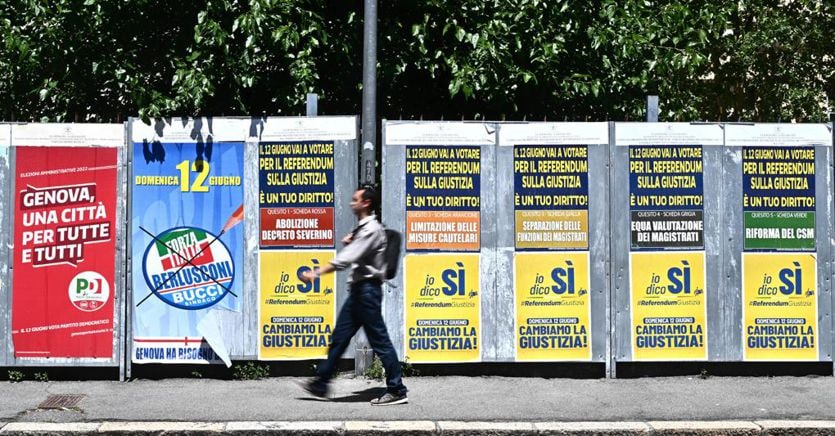26 capitals to vote, 16 administered by the center-right
In particular, 22 provincial capitals and 4 regional capitals are called to vote. Among the capitals, 16 are governed by the center-right (Alessandria, Asti, Catanzaro, Como, Frosinone, Genoa, Gorizia, L’Aquila, La Spezia, Lodi, Monza, Oristano, Piacenza, Pistoia, Rieti and Verona), 4 by the center-left ( Cuneo, Lucca, Padua and Palermo), 2 from civic coalitions (Belluno and Parma), while 4 are those in the commissariats (Barletta and Taranto after a vote of no confidence, Messina and Viterbo due to the resignation of the mayor).
Who can vote
All adult citizens present on the electoral lists are allowed to vote. EU citizens residing in Italy can also vote for municipal councils, after registering with the electoral lists.
How to vote and when separate voting is possible
A mark can only be made on the name of the candidate for auditor without marking any list mark (in this case the vote is attributed only to the chosen candidate for auditor). Or on the identification of the list linked to the candidate for statutory auditor or also on both the candidate for statutory auditor and on the list linked to the same candidate for statutory auditor: in any case, the vote is attributed both to the list of candidate directors and to the connected candidate for statutory auditor. In municipalities with up to 15,000 inhabitants, separate voting is not envisaged, i.e. the possibility of voting at the same time for a list that supports a possible mayor and a candidate for mayor from another party. Possible option instead in municipalities over 15 thousand inhabitants.
When the ballot starts for the election of the mayor
In municipalities with up to 15,000 inhabitants there is no ballot: the candidate who obtains the highest number of votes is elected mayor. Only in the event of absolute parity of votes will a ballot be held on Sunday 26 June. In municipalities over 15,000 inhabitants, the candidate who obtains the absolute majority of valid votes (at least 50% plus one) is elected mayor in the first round. If no candidate reaches this threshold, voting will be resumed on Sunday 26 June for the ballot between the two most voted candidates.
The rules for preferences
In municipalities with a population of less than 5,000 inhabitants, only one preference can be expressed for a candidate city councilor. In municipalities with at least 5,000 inhabitants, it is possible to express no more than two preferences for candidates for municipal councilors, by writing their surname in the appropriate dotted lines located below the list mark. In case of expression of two preferences, these must concern candidates of different sex, under penalty of cancellation of the second preference. Preferences must be expressed, exclusively, for candidates included in the voted list.
